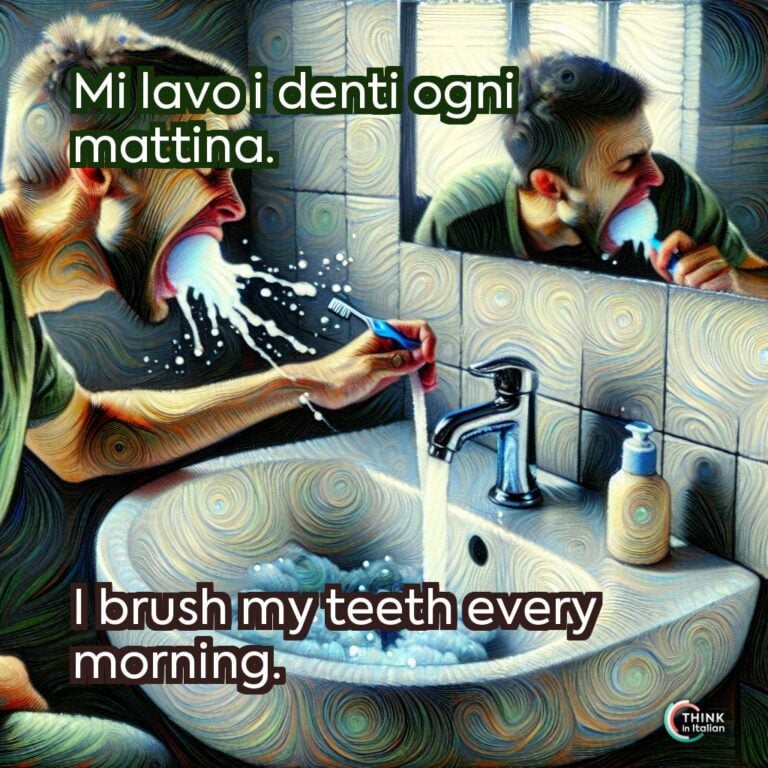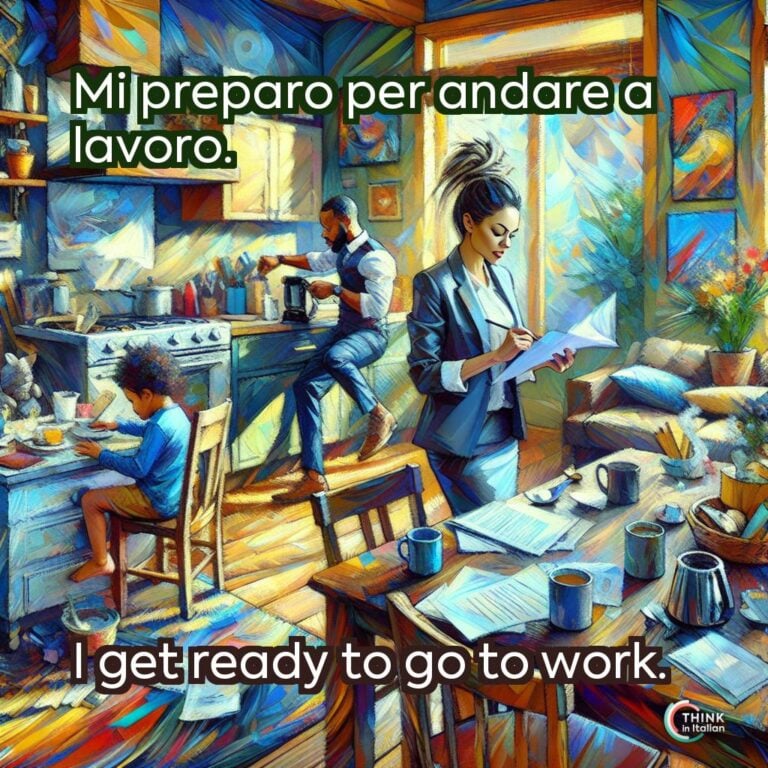What are the reflexive verbs in Italian?
Reflexive verbs (verbi riflessivi) are verbs whose direct object is the same as its subject. This means that the action of the verb is both committed and received by the same person or thing.
They exist in English as well. For example, in the sentence, “I hurt myself” the verb is in its reflexive form since the subject (I) and the direct object (myself) refer to the same person.
Common Italian reflexive verbs
However, Italian reflexive verbs are much more common than in English! Many frequently used reflexive verbs are verbs that are used to describe our daily routine, for example:
- Alzarsi – to get up
- Vestirsi – to dress oneself
- Svegliarsi – to wake up
- Lavarsi – to wash up
- Pettinarsi – to comb one’s hair
- Addormentarsi – to fall asleep
How to use the reflexive pronoun si?
In the infinitive form the reflexive verbs end with the reflexive pronounsi. It indicates self or oneself.
However, when used in a sentence, we need to conjugate the reflexive pronouns according to the subject.
We do this in English. In fact, we say: I enjoy myself, you enjoy yourself, she enjoys herself, and so on.
How to conjugate frequently used reflexive verbs?
Reflexive verbs are conjugated in the same way as other verbs but they need a reflexive pronoun before the verb.
Let’s look at one example, using the very frequently used verb chiamarsi.
You learned this verb when you learned to introduce yourself in Italian (even though you probably did not know it was a reflexive verb!).
Literally, mi chiamo means I call myself.
| Subject | Reflexive Pronoun | Example |
| io | mi | mi chiamo |
| tu | ti | ti chiami |
| lui / lei | si | si chiama |
| noi | ci | ci chiamiamo |
| voi | vi | vi chiamate |
| loro | si | si chiamano |
Learn more about Italian verb conjugation here
What is the rule of reflexive verbs?
One important rule about reflexive verbs is that when we use complex tenses (tenses for which the verb is made up by more than one word, for example, passato prossimo), we always must use the auxiliary verb essere and not avere.
For example:
Ieri mi sono svegliato alle otto.
Yesterday I woke up at eight o’clock.
Common reflexive verbs: examples
Let’s take a look at some more examples:
Ogni mattina mi alzo alle sette e mezza.
I get up at half past seven every morning.
Ti fai la doccia due volte al giorno?
Do you shower two times a day?
Come si chiama il tuo ragazzo?
What’s your boyfriend’s name?
Abbassa la voce! I bambini si sono appena addormentati.
Lower your voice! The children just fell asleep.




